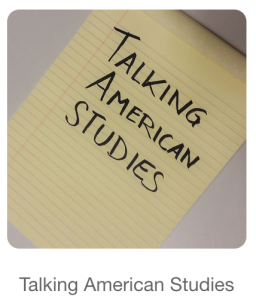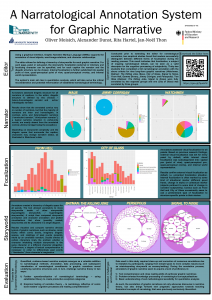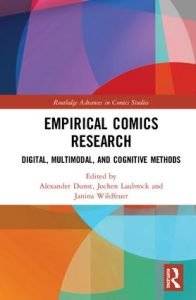This research project brought together literary scholars with cognitive and computer scientists to develop new methods for the study of visual media and culture, and understand the evolution of graphic narratives, or book-length comics, written in English. A collaboration between the universities of Paderborn and Potsdam, it was funded as an early career research group by the German Federal Ministry of Education and Research (BMBF) in two phases between 2014-2015 and 2015-2021, and directed by Alexander Dunst and Jochen Laubrock.
On this site, you can find individual blog entries, archived below, as well as a list of publications, updated as of April 2023. In addition, you can download the M3 editor software, developed for the visual annotation of comics by Rita Hartel. A dedicated corpus site also allows you to download the metadata for the “Graphic Narrative Corpus“ (GNC) and look at a number of sample visualizations.
Work on several aspects of the data produced for the Hybrid Narrativity project continues at Paderborn and Potsdam, with Jochen Laubrock focusing on cognitive processing, Rita Hartel on text and image recognition, and Alexander Dunst on the stylistic evolution of graphic narrative. Feel free to contact them individually, if you have specific questions to do with their area of expertise. Our sincere thanks go to the team members of the early career research group and collaborators over these years!



